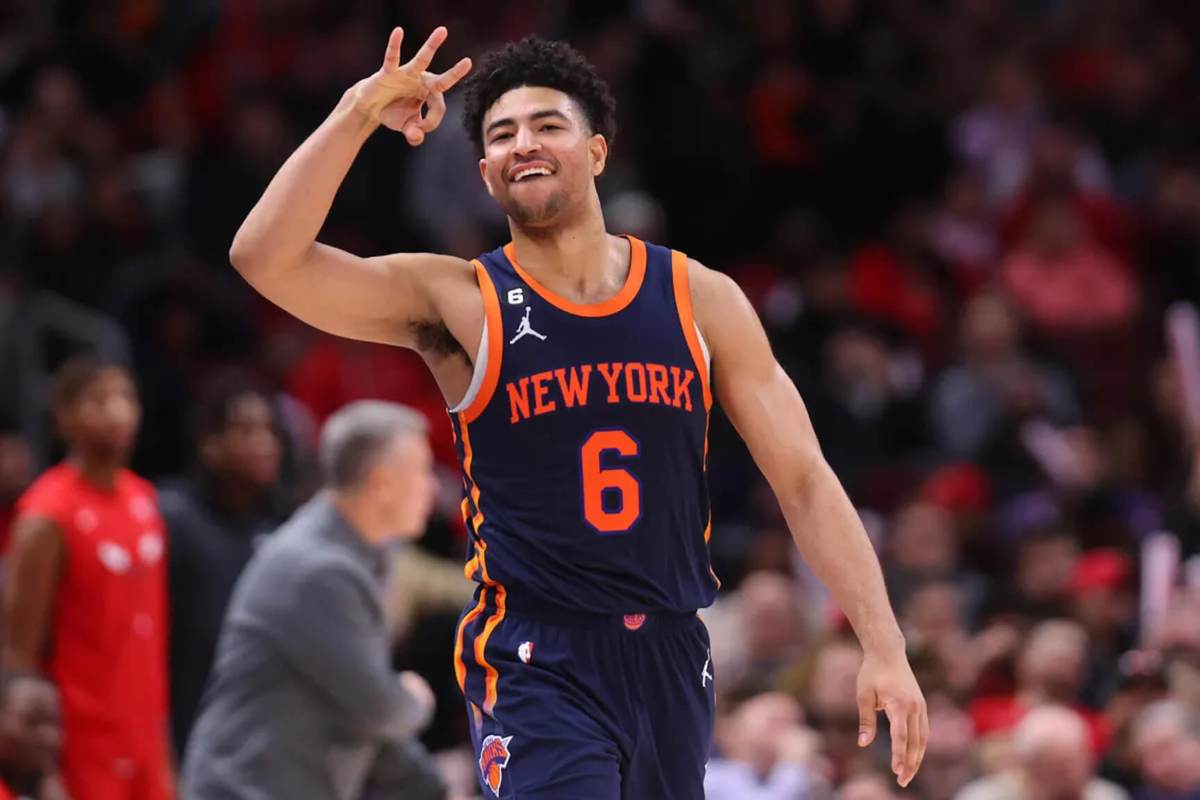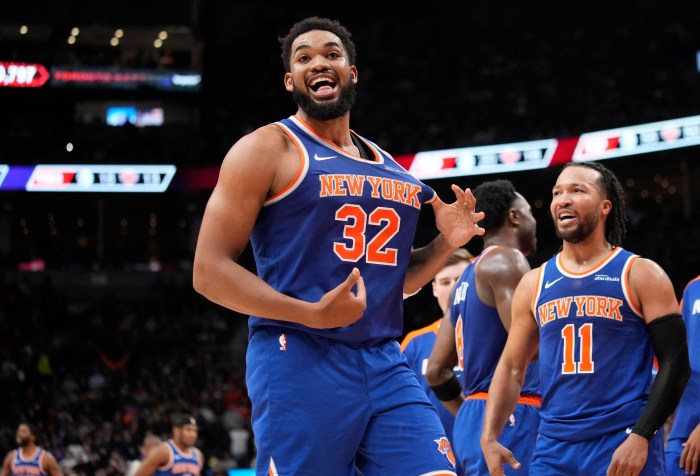Earlier this year, the NBA and the players agreed to a new collective bargaining agreement (CBA) that could have far-reaching ramifications on how teams are able to construct their rosters going forward. With the Knicks currently less than $4 million under the luxury tax, what does the new CBA mean for potential moves this offseason?
Let’s start with covering the basics of the new CBA which incentivizes teams to build through the draft and hands out harsh punishments for teams that overspend the salary cap. So far, two things that work in the Knicks’ favor.
The NBA uses a “soft” salary cap which means that teams can exceed the cap in a few circumstances with various repercussions. However, none of those repercussions currently prevent teams from vastly overspending as this season’s salary cap is roughly $122.7 million, but there are teams spending as much as $191 million in pre-tax salary.
A lot of that can be traced back to 2016 when a new TV contract between the league and its national media partners (Disney and Turner) led to an influx of revenue that increased the NBA salary cap by 32%. This created an uneven distribution of wealth within the league and had more immediate consequences like giving the Golden State Warriors the cap space needed to sign Kevin Durant.
However, now the cap’s growth will not be limitless as the new agreement stipulates that the salary cap cannot increase by more than 10% in any given year no matter how much new revenue the league makes.
This would seem to be bad for the Knicks since New York teams frequently have among the highest payrolls in their respective sports, but the Knicks have not been included in that under Leon Rose.
The new CBA will also more severely punish teams who spend above the salary cap.
There are multiple levels above the luxury tax line that trigger punishments. For example, there is an “apron” that is around $6 million above the tax line, but the new CBA creates a second “apron” which is around $17.5 million above the tax line and triggers a few key restrictions to make it harder for teams to spend significantly more money on talent than their competitors.
For starters, teams above the second apron cannot use the taxpayer mid-level exception to sign free agents. These contracts can last up to three seasons, and this year, they could pay a player as much as $6,48 million in starting salary. The Knicks currently have their mid-level exception, so this part doesn’t currently impact them.
However, this is a big deal for many of the league’s top teams.
The league’s most expensive teams often rely on minimum contracts to complete the back of their rosters. Since most minimum contracts are only one-year deals, those teams only have Non-Birds on that player in free agency the following offseason, which means that they could only offer a 20% raise on their prior, minimum salary. To workaround that, teams used the taxpayer mid-level exception, which allowed them to retain their minimum-salary player by giving them a reasonable raise.
Without the taxpayer mid-level exception, these teams that go over the second apron are likely going to lose their best minimum-salary players after only one year.
Additionally, teams above the second apron cannot sign players on the buyout market, which means any player who is traded and waived during the season or waived while sacrificing a portion of his salary. This year players who moved teams on the “buyout market” were Kevin Love, Reggie Jackson, Russell Westbrook, and many more, so being forbidden from adding players this way could be impactful.
Teams over the second apron, along with teams over the first apron, also can’t receive players back in a sign-and-trade deal, which would eliminate yet another way to be creative in adding players over the off-season.
For the Knicks, a team with seven first-round picks in the next three years, being incentivized to build through the draft is certainly not a problem.
Additionally, for teams who are not over the second apron, like the Knicks, the non-taxpayer mid-level exception will be increased by 7.5%. This season, the maximum starting salary on a non-taxpayer mid-level contract was $10,490,000. That means the Knicks could use their mid-level exception to bring in a more expensive player than they could have a year ago.
Another additional feature that is good for the Knicks is that the new CBA allows non-max players to sign an extension of up to five years. Under the old CBA, only max contract players could get a fifth-year extension. That means, the Knicks could choose to extend Immanuel Quickley for five years without having to give him a max contract.
This could also mean that Josh Hart, who everybody expects to opt out of the final year of his contract, could decide to opt-in so that he could be eligible for this level of extension from the Knicks that might pay him more money.
Lastly, in an effort to prevent “load management” of star players, the new CBA requires players suit up for 65 games (except in the case of injury) in order to be eligible for All-NBA teams, MVP, and more. Since the Knicks under Tom Thibodeau has never rested their star players, they could be at an advantage here while other teams work to modify their strategies.
Additionally, All-NBA teams will now be positionless, which means that somebody like Julius Randle may not have made third-team All-NBA this year with the league needing to fill a certain number of forward slots.
At the end of the day, the changes for the new CBA may drastically change the future for a few of the highest-salaried teams in the league, but the Knicks appear to be sitting pretty in comparison. The question is, can they capitalize on that?
For more Knicks coverage, visit amNY Sports
Read more: Belmont Park Plans Grandstand Overhaul and Synthetic Oval




































